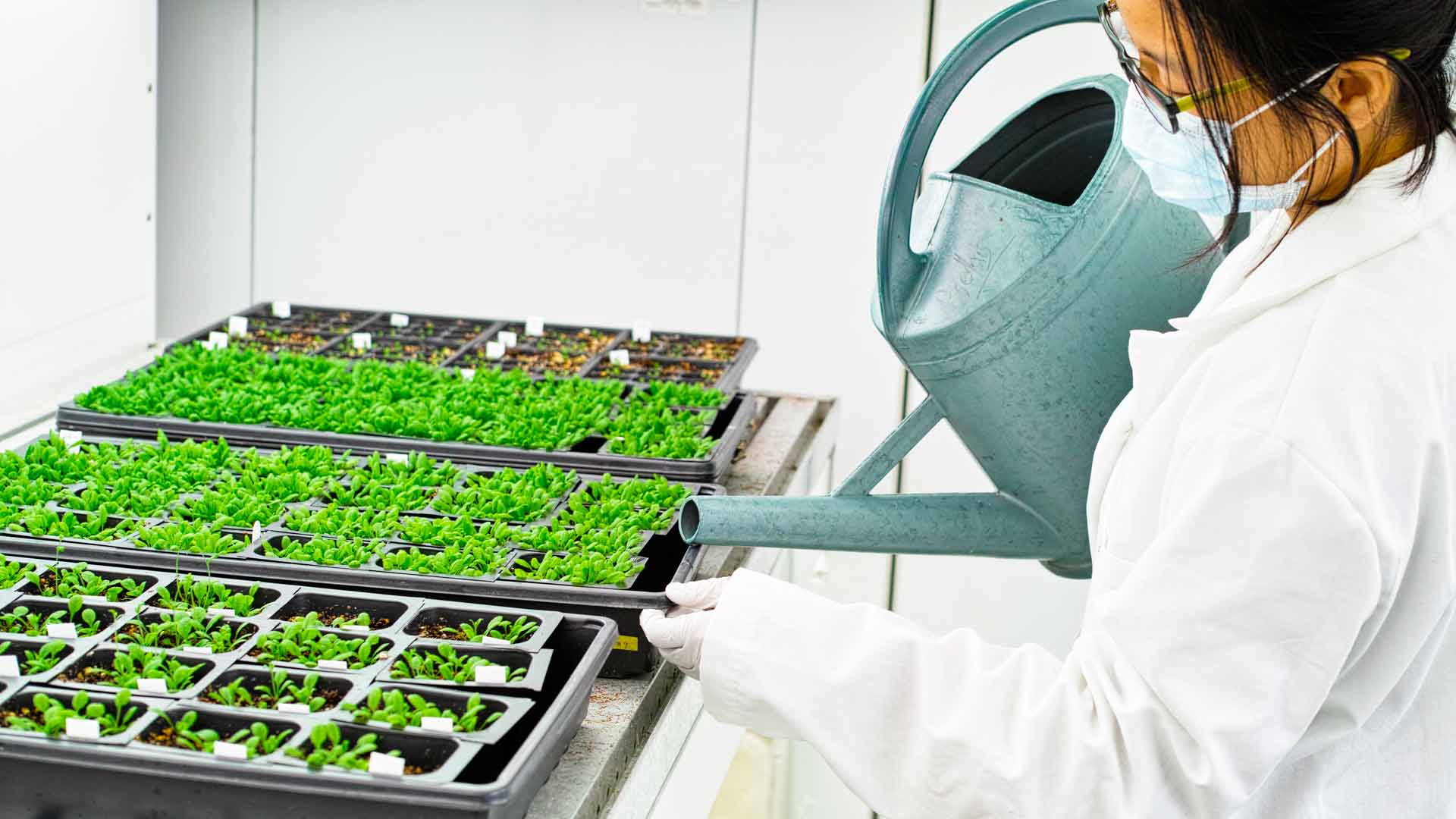by Jonathan Eisenthal
More than ever before, Minnesotans need the unique suite of services AURI offers. Thanks to an additional $150,000 in funding from the Minnesota Legislature, AURI has been able to increase its personnel to nine-and-a-half science and engineering positions. Bonding approved by the legislature will also allow AURI to purchase equipment and technology necessary for handling the higher demand for services.
“The thing that differentiates AURI from other organizations in the state is the research support we supply to clients and innovators across the state,” says Rod Larkins, senior director of science & technology at AURI. “Over the last four years, the technical capacity at AURI has increased from five people to nine positions to better meet the technical demands from Minnesota’s entrepreneurs. We have added a microbiologist, 1.5 food scientist positions, a full-time engineer, and a half-time chemical engineer.”
AURI has facilities and personnel located in Crookston, Marshall, Waseca and the Twin Cities. These include:
- A full-time microbiologist in Crookston,
- A half-time technician, a full-time materials scientist, and a full-time engineer in Waseca,
- A full-time meat scientist who also does food science, a half-time chemical engineer, a food scientist—devoting half time to food science and the other half to analytical work on food and food products, and a full-time analytical chemist, who also performs organic chemistry tasks.
- A full-time food scientist in the Twin Cities who works in various food labs
and commercial kitchens, to offer on-site consultation
“It gives you a sense for how versatile our staff is—with a small group we are covering a range of technical services.” says AURI executive director Shannon Schlecht. “The expansion of our staff is a response to a surge in demand: local food entrepreneurs and the local food movement are moving full speed ahead in Minnesota. We also brought back an engineer after several years to bring a different perspective to problem solving to better serve
our clients.”
State bonding will help AURI make investments in capital equipment, potentially including new drying technology at Waseca, and safety/security upgrades for Marshall’s entrepreneur-in-residence program, as well as food sensory capabilities.
Increasing the efficiency of the services AURI offers is a big part of these investments, according to Larkins.
“We will be adding a developmental kitchen to provide new commercialization opportunities for our food clients,” Larkins says. “It will help food entrepreneurs explore and fine tune their recipes and bring their products to market sooner and with higher potential for success.”
On the project side of the equation, Ashley Harguth, previously engaged in communications for AURI, now shepherds incoming projects, helping entrepreneurs and innovators understand what information is necessary to determine which AURI services will best suit their project’s needs.
With the legislative support, AURI has also been able to further themed convening sessions, which have been a great hit across many different segments of the food and agriculture industries of Minnesota. Seminars about “Proteins, plant and animal,” “Bio-based Materials,” as well as a larger New Uses Innovation Forum were among 17 Innovation Networking events held this year that provided information and networking assistance to over 400 participants to advance innovative ideas.
In addition, AURI launched its Ag Innovation Partnership program in March. A novel approach, it reverses the usual model of companies going to AURI requesting services and instead AURI requests companies to propose development-worthy ideas to leverage their business resources with AURI’s unique knowledge and capabilities to help accelerate
those ideas.
